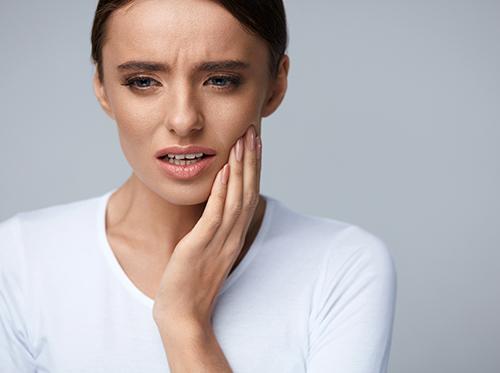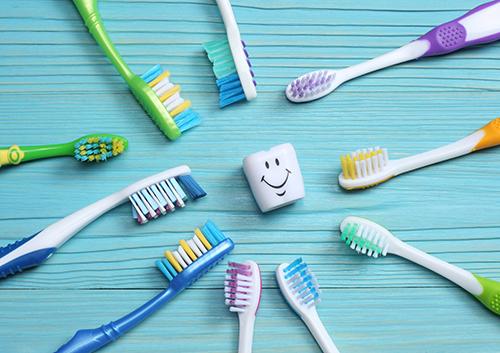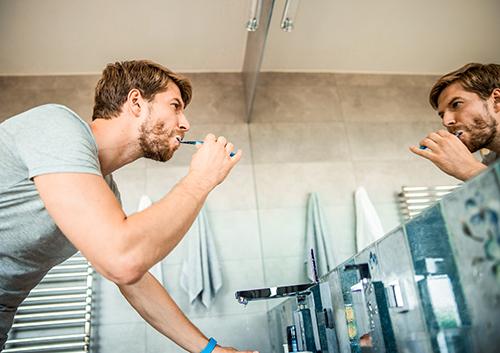My Blog
Every Day is Earth Day
- posted: Apr. 17, 2024
During the early days of the environmental awareness movement, those who demonstrated against pollution, toxic chemicals, and the general public health were known as hippies. The early 1970s were a Read More
Camping Oral Health Tips
- posted: Apr. 10, 2024
If your idea of camping is a quiet walk through the woods before returning to your rustic hotel, your regular brushing habits will be perfect for your trip. But if Read More
Do Spring Allergies Mean (B)Looming Dental Problems?
- posted: Apr. 03, 2024
April showers bring May flowers, and May flowers bring . . . allergies. If you’re one of the millions of people who suffer from seasonal allergies, you might be suffering Read More
What exactly is a cavity?
- posted: Mar. 27, 2024
We all know how discouraging can be it to hear you have a dental cavity. Knowing how cavities form can help you prevent them from popping up in your mouth. Read More
Top Ten Ways to Improve Heart Health
- posted: Mar. 20, 2024
The human heart truly appreciates it when we eat healthy foods, don’t smoke, and exercise regularly. But there’s something else that can improve your heart’s longevity and you may not Read More
Go Green for St. Patrick’s Day
- posted: Mar. 13, 2024
Millions of people, around Haverhill, Massachusetts and beyond, wear green on St. Patrick’s Day so they can show their spirit for the holiday and avoid getting pinched. While it may Read More
Are your teeth ready for the big day?
- posted: Mar. 06, 2024
Capturing the Moment At Greenleaf Dental Care we know that just about anyone who has taken on the challenge of planning her own wedding could tell you how important the little Read More
Seven Ways to Repurpose Old Toothbrushes
- posted: Feb. 28, 2024
It’s done a wonderful job for you, but after three or four months, the time has come to retire your toothbrush. Bristles that once easily removed food particles and plaque Read More
The Best Brush of the Day
- posted: Feb. 21, 2024
Imagine that you’re only going to brush your teeth once tomorrow. Don’t worry, we know you would never skimp on your dental hygiene like that, but let’s just pretend for Read More
Valentine's Day History
- posted: Feb. 14, 2024
Valentine’s Day is best known as a celebration of love in all its forms. Pink hearts, red roses, and cute greeting cards adorn every surface you see. What many people Read More
February is Heart Month
- posted: Feb. 07, 2024
The American Academy of Periodontology stresses the importance of good oral health since gum disease may be linked to heart disease and stroke. Thus far, no cause-and-effect relationship has been Read More
Famous Dentists in History
- posted: Jan. 31, 2024
Every six months or so you head down to your local dentist for a teeth cleaning, but have you ever thought that your dentist could one day be famous? Well, Read More
Tips for a Whiter Smile
- posted: Jan. 24, 2024
Everyday life can take a toll on the whiteness of our teeth: Foods we love as well as soft drinks and coffee can stain them over time. Poor brushing and Read More
Pediatric Dental Emergency Know-How
- posted: Jan. 17, 2024
Parents are usually expert at taking care of their children’s injuries. You know how to disinfect a cut, soothe a bump on the head, and apply a bandage faster than Read More
How do I overcome my dental anxiety?
- posted: Jan. 10, 2024
Do you feel anxious before every dentist appointment? If the answer is yes, you are not alone—more than 75 percent of Americans feel anxious when visiting their dentist. Today, the Read More
Tooth Protection and Winter Sports
- posted: Jan. 03, 2024
Just because it’s cold out there doesn’t mean you’ll give up keeping fit and active! Winter is the season for some of our favorite team sporting activities, and when you’re Read More
Questions or Comments?
We encourage you to contact us whenever you have an interest or concern about our services.
Call Today 978-374-7942
122 Kenoza Avenue
Haverhill, MA 01830

















